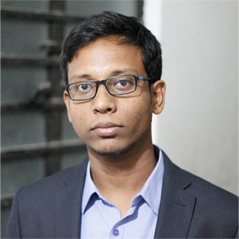
|
VNI: Virtualization for Enabling Next-Generation IoT NetworksWorkshop co-located withIEEE International Conference on High Performance Switching and RoutingParis, FranceJune 7-10, 2021 |

CALL FOR PAPERS
Virtualization is one of the important techniques for enabling next-generation networks in current decades. It helps in utilizing the resources efficiently by creating multiple virtual instances simultaneously. Some of the advantages of the virtualization are — a reduction in Capital Expenditure (CAPEX) and Operational Expenditure (OPEX), fast service provisioning, increased utilizations, and overall productivity. Currently, virtualization is a routine practice in different organizations to increase productivity with less expenditure. The common types of virtualization include desktop virtualization, network virtualization, storage virtualization, CPU/GPU virtualization, and sensor virtualization.
Typically, IoT infrastructure provides a unified platform to serve multiple distinct applications simultaneously. In these applications, different heterogeneous resources such as memory, processor, and sensors are heavily involved. When we consider the real-implementation of an IoT infrastructure over a large deployment area, the efficient management and utilization of these resources become a crucial part of the system. However, the virtualization technological paradigm becomes popular in managing the resources in IoT infrastructure.
Virtualization expedites the IoT platform to serve multiple distinct types of applications concurrently and eliminates the single-user-centric usage of the costly resources. Typically, in virtualization, the virtual instance of the resources is created to utilize them in different IoT applications. On the other hand, users are abstracted from the process of virtualization and are unaware of which physical resources are associated with the application services. Multiple actors such as resource owners and service providers participate in the virtualization platform. However, these actors may be involved with monetary transactions and earn profit from the virtualization platform.
The existing literature addresses different research issues in the domain virtualization. However, there are still certain unexplored issues that are required to be addressed for an efficient utilization of the resources for IoT applications. In order to increase the mass adoption, by addressing the existing research issues of the virtualization in different IoT applications, we plan to organize this workshop in the premier conference venue of IEEE HPSR 2021. The proposed workshop is a collaborative endeavor to discover and establish new schemes, frameworks, algorithms, and protocols to address the existing challenges in virtualization for IoT applications. Moreover, we believe that the researchers from the different parts of the globe will receive an opportunity to address the unexplored research lacunae and present their work through this workshop. We expect to receive a large number of submissions of high-quality research manuscripts across the globe. The scope of this workshop focuses on topics, not limited to:
For more information, please see IEEE HPSR 2021 official website: https://hpsr2021.ieee-hpsr.org/authors/call-for-worksop-papers/
COMMITTEE
Workshop General Chairs
 |
 |
 |
 |
Arijit Roy SensorDrops Networks Pvt. Ltd., India arijitroy.net@gmail.com |
Ayan Mondal University of Rennes, Inria, CNRS, IRISA, France ayan.mondal@irisa.fr |
Pascal Bouvry, FSTC-DCS/SnT University of Luxembourg, Luxembourg pascal.bouvry@uni.lu |
Albert Y. Zomaya CEng, FAAAS, FIEEE, FIET, FRSN, MAE University of Sydney, Australia albert.zomaya@sydney.edu.au |
Workshop TPC Co-Chairs
SUBMISSION
Submitted papers must be unpublished and should not be submitted elsewhere at the same time. Accepted papers should not exceed 6 pages in two-column IEEE Transactions style. Accepted papers longer than 6 pages will be charged for each extra page. Papers cannot be longer than 8 pages. Papers should be submitted as PDF files through the EDAS system. All submitted papers will be subject to three independent reviews.
There is a single registration for all HPSR 2021 attendees, comprising tutorials, main conference, and workshops. To upload the final version of an accepted paper, one author is required to register to HPSR 2021 (full (member or non-member) registration). One full registration to HPSR is sufficient to present three papers accepted at the main conference or at the workshops. The paper will be included in the HPSR 2021 Proceedings and will be published on IEEE Xplore provided that it will be presented by an author of that paper at the conference (the condition holds both for main conference and workshop papers).
Submit your paper via EDAS >> https://www.edas.info/newPaper.php?c=28060&track=106201
For paper submission guidelines on official page of IEEE HPSR 2021, please follow the following link:
https://hpsr2021.ieee-hpsr.org/authors/papers-submission-guidelines-workshops/
For paper submission, please follow the following link:
https://www.edas.info/newPaper.php?c=28060&track=106201
IMPORTANT DATES
April 25, 2021 May 6, 2021May 5, 2021 May 16, 2021May 16, 2021 May 19, 2021
PROGRAM
The detailed worshop program is available at https://hpsr2021.ieee-hpsr.org/vni-21-virtualization-for-enabling-next-generation-iot-networks/